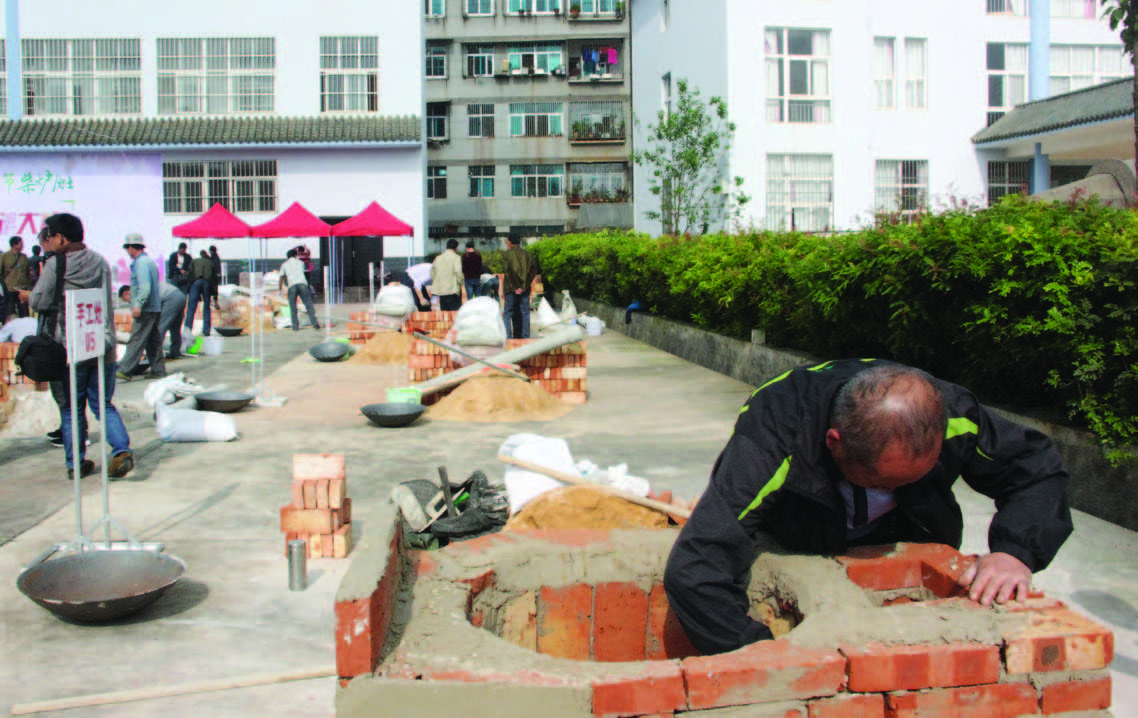
Life in both rural and urban areas is changing. In the past, rural communities used bio-mass energy such as firewood, straw and cow dung, but nowadays, skills to make one’s own energy supply are disappearing, as is a way of life connected to one’s local conditions. Villages are depending more and more on an external energy supply and today, electricity has become the norm. Over the past decade, we have worked with partners and communities to reflect on the adverse impacts that the mainstream economy has brought to both rural and urban areas. Together, we have searched for ways to regenerate resources and manage energy consumption sustainably; we have also explored alternative economic models.
Since 2015, we have been in partnership with Baoshan University, Yunnan Province. One project has been to support research on energy consumption in Baoshan City: 30 university students collected information at both the individual and household level, from clothing and food, to housing and transportation to entertainment, covering the campus area and beyond. Interviewees were asked about their attitudes and daily habits, counting the number of unworn pieces of clothing in their wardrobes, the number of expired food items in their kitchens, the amount of food wasted in canteens, how much disposable packaging used, and to estimate their carbon emissions. The research was accompanied with innovative activities such as a wardrobe photography exhibition. The research enabled both interviewers and interviewees to experience and, at the same time, to reflect on how energy consumption relates to overall consumption. Overall, the project has prompted people in Baoshan to think about their lifestyle, and to contemplate how to consume less energy. The research, including its design, execution and communication, was a learning process full of challenges, and the project partners, student volunteers and urban residents alike were deeply impressed by what it demonstrated.
The handmade wood-burning stove – the embodiment of rural traditional culture – is used nowadays to cook for guests, to prepare food for major festivals, and in worship of the Kitchen God. To increase public awareness of rural energy consumption, and to promote locally appropriate energy-saving stove technology, PCD in partnership with Yunnan Green Environment Development Foundation and Yunnan Rural Energy Work Station jointly organised the provincial-level Firewood-saving Stove Creative Design Competition in 2017. We targeted rural residents, grassroots rural energy technicians, university students, and stove manufacturers, aiming to raise public awareness on energy issues. Out of the 65 submissions from 32 county level energy work stations in 14 municipalities and prefectures, 42 designs were selected for the exhibition. The final review was buzzing with activities. Other than on-site stove installation and efficiency assessments, there was an interesting display of environmental protection posters and a tasting of indigenous potato varieties. Plus, the stoves provided the energy needed for the event.
After the competition, many stove artisans and energy work station staff said that it was eye-opening to be able to see different stove models, meet master technicians, and learn new knowledge. Drawing on the experience, they are keen to continue working to design stoves that are more firewood-efficient, easier-to-use, and more closely integrated with the local environment.
(from Annual Report 2017-2018)

